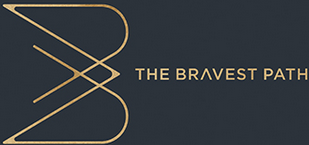Accountability Pods: The Key to Helping You Be Braver
Developing courage inspires others to do the same and helps us all be happier. We see courage as the foundation of all emotions, because without it, we cannot take the first steps to reaching our goals, improving our relationships, and becoming even braver than before.
In all our programmes we have learning pods who coach each other to overcome their fears, challenge their perceived limitations, and support each other when things don’t work out as planned. Reframing failure is an important part of being braver, and we need to take smart risks to cultivate greater courage and develop greater emotional resilience separating “I’m a failure” from “I failed”. These accountability pods are crucial in helping people choose courage over comfort and lean into the uncertainty of being braver than ever before.
Why not set one up for yourself? Here are our tips on how to set one up for maximum success:
Invest in your pod
The more you put into your pod, the more you will get out of it! Going first to support others, challenge their thinking and encouraging them to check in when they’ve taken action will reap benefits in the longer term. There isn’t always an initial payoff when you invest in relationships, yet the outlay of your time and energy can be huge. We have many pods still in contact years after our programmes end still supporting and helping each other.
Cultivate nonjudgement
People feel safe to share and be authentic when they know that others aren’t making them right or wrong. Use your pod as a space to explore how you can support others unconditionally, helping them rise will help you rise also.
Be willing to be vulnerable
Accountability is a vulnerable process; we need to choose to practice courage over comfort with our pod members in order to help them grow and not hide behind excuses or perceived limitations. Vulnerability is the quickest way to trust and creates a powerful pod dynamic. What would you say if you were 10% braver? Challenge yourself to share (with boundaries that feel safe for you) a little bit more of yourself.
Commit to a regular check in and schedule upfront
Decide a structure, frequency and time that works for the pod, with clarity around what you’ll do if this falls away – how will you hold each other to account? What do you need from each other if this slips?
In all our programmes, participants comment that the people that accompanied them were a key factor in their learning and growth, and that this investment in time was exponential in terms of their results achieved.
Let us know how your pods work out, and any other tips you’ve found that have helped foster accountability in the comments below.
Share this entry
